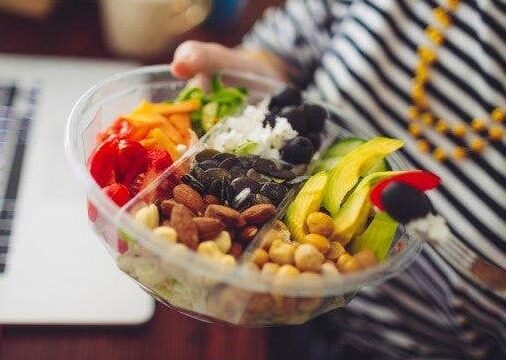Making good decisions is something everyone values, whether it’s choosing how to spend a day, planning finances, or managing responsibilities at work and at home. Clarity in decision-making is not just about logic or reasoning; it is also influenced by how well the body and mind are nourished. In the United States, where fast-paced lifestyles often encourage quick meals and snacks, many people may overlook how food directly affects mental clarity. Eating with intention can provide steady energy, sharpen focus, and support a balanced mood, all of which help in making thoughtful decisions.
The Connection Between Food and Clarity
Food provides more than calories. It supplies the brain with the nutrients needed to form neurotransmitters, regulate blood sugar, and maintain consistent energy. When meals are irregular or made up of highly processed foods, energy spikes and crashes may follow, often leading to clouded thinking or impulsive choices. On the other hand, when meals include whole foods, steady energy supports a clearer mind.
The brain relies heavily on glucose as its primary energy source. However, the type of carbohydrates consumed makes a difference. Refined sugars may cause quick surges of energy followed by fatigue, while fiber-rich carbohydrates provide a gradual release that keeps energy stable. This balance is key when aiming to make decisions without distraction or mental fog.
Morning Foods for a Clear Start
Many people in the USA start their day with coffee and perhaps a quick pastry or breakfast sandwich. While these choices may be convenient, they often lead to mid-morning sluggishness. A better approach is to focus on foods that combine protein, healthy fats, and complex carbohydrates. For example, oatmeal topped with nuts and berries provides fiber, antioxidants, and slow-digesting carbohydrates. Greek yogurt with seeds and fresh fruit offers protein and probiotics to support gut health, which is increasingly linked to mood and cognition.
Eggs, often enjoyed in American households, are another option since they are rich in choline, a nutrient that supports memory and learning. Pairing them with vegetables adds vitamins and minerals that further enhance focus. Starting the day with such meals creates a steady foundation for decisions throughout the morning.
The Role of Hydration
Clarity in decision-making is not just about solid food. Hydration plays a large role in brain function. Even mild dehydration can affect concentration and reaction time. Water is the simplest and most effective option, but herbal teas or water infused with lemon or cucumber can also be refreshing. While coffee and tea can be enjoyed in moderation, relying on them heavily may cause jitters or energy dips later in the day. Aiming for consistent hydration helps keep the mind sharp.
Lunch Choices That Avoid the Afternoon Slump
In the United States, many workers experience an afternoon slump where energy and focus decline. Often this is linked to heavy lunches high in refined carbohydrates or saturated fats. Instead, balanced lunches with lean protein, vegetables, and whole grains can sustain energy.
A salad with mixed greens, beans, avocado, and olive oil dressing provides healthy fats and plant-based protein. A grain bowl with brown rice, roasted vegetables, and grilled chicken offers fiber and steady energy. Even sandwiches can be supportive if made with whole-grain bread, lean protein, and plenty of vegetables. These meals avoid the sharp energy drop that often follows fast food or heavy portions.
Snacks That Keep the Mind Steady
Decision-making does not always happen at planned times; sometimes quick choices must be made in the middle of a busy afternoon. Having supportive snacks can prevent poor decisions influenced by hunger. Nuts, seeds, fruit, and vegetables with hummus are portable and provide a mix of nutrients. Choosing these over sugary snacks or chips reduces the chance of a sudden energy crash.
In the United States, packaged snack options are abundant, but many contain high amounts of added sugar or sodium. Being selective and keeping wholesome snacks nearby allows for more stable energy and a clearer mind when it is needed most.
Dinner That Supports Evening Reflection
Evenings often bring opportunities to reflect on the day or plan for tomorrow. Meals that are too heavy or high in processed fats may leave the body sluggish, interfering with focus. Instead, dinners that combine vegetables, whole grains, and either plant-based or lean animal proteins provide nourishment without overburdening digestion.
A simple plate of salmon with quinoa and roasted vegetables supplies omega-3 fatty acids that support brain health. A plant-based stir-fry with tofu, broccoli, and brown rice offers both protein and fiber. These meals not only satisfy hunger but also promote the calm and clarity needed to wind down thoughtfully.
Foods That May Cloud the Mind
While focusing on what to eat is most helpful, it is also worth considering what might reduce mental clarity. Foods with excess added sugar, refined flours, and heavy fried ingredients often cause energy spikes followed by fatigue. Over time, frequent intake of such foods may contribute to inconsistent moods, making decisions harder. This does not mean these foods must be avoided entirely, but enjoying them occasionally while prioritizing nutrient-rich meals helps maintain balance.
The Role of Omega-3s and Healthy Fats
Healthy fats are crucial for brain health. Omega-3 fatty acids, found in fish like salmon and in plant sources like flaxseeds, walnuts, and chia seeds, support memory and learning. Avocados and olive oil provide monounsaturated fats that promote healthy blood flow to the brain. Including these regularly in meals can help sustain clarity and reduce the chance of decision fatigue.
Mindful Eating and Mental Focus
Eating habits also matter. In the USA, multitasking while eating is common, whether it’s working at a desk, driving, or scrolling through a phone. Mindful eating, which means slowing down and paying attention to flavors, textures, and fullness cues, helps improve digestion and awareness. This mindful approach carries over into clearer thinking. Taking even a few moments to eat without distraction allows the body to properly register the meal, stabilizing both energy and mood.
Building Consistency for Long-Term Clarity
Clarity in decision-making is not about one single meal. It is the result of consistent choices over time. By gradually shifting toward whole foods, staying hydrated, and balancing meals, decision-making becomes more steady and less influenced by fatigue or sudden hunger. Each supportive meal builds a foundation for clearer thinking not only today but also in the long run.
Conclusion
Eating for mental clarity is a practice that blends nourishment and balance. In the United States, where busy schedules often shape eating habits, choosing meals that stabilize energy and support the brain can make a noticeable difference in decision-making. Whole grains, fruits, vegetables, healthy fats, and lean proteins form the backbone of this approach, while mindful eating enhances its benefits. By treating food as a tool for focus, anyone can strengthen their ability to make clear, thoughtful choices every day.






